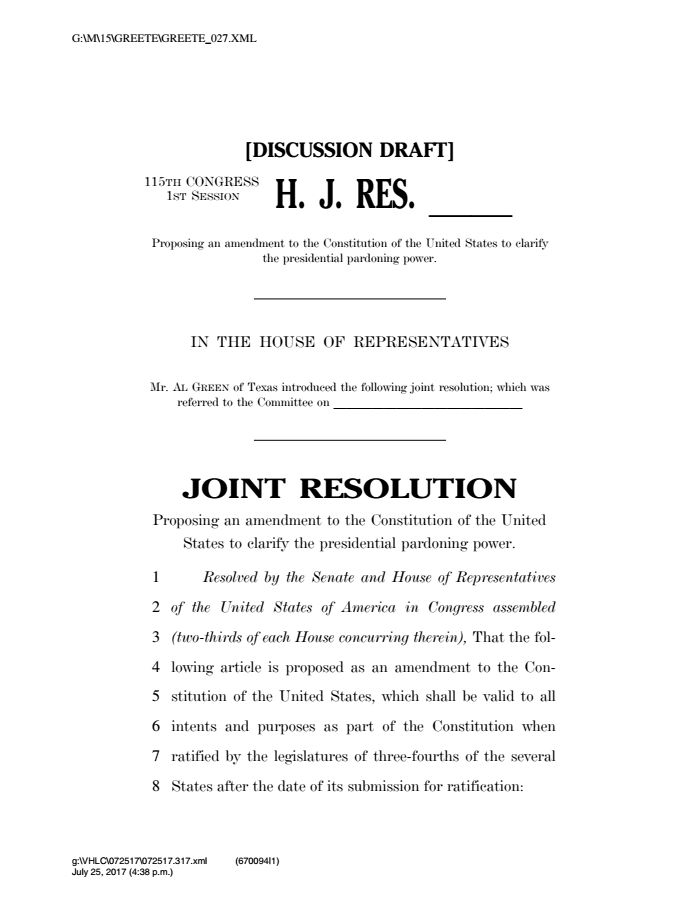
On Thursday morning, Rep. Al Green will propose a constitutional amendment that would explicitly bar the president from granting himself a pardon.
"Nobody wants to see that," the Texas Democrat told BuzzFeed News. "Bigger than the current president, this is for all presidents. If we can't stop one, we'll stop the rest."
Green said on Wednesday evening that he doesn’t think such an amendment is needed — he thinks the Constitution doesn’t allow such a self-pardon. But he’s laying the groundwork to try to pass an amendment like this, should it become necessary.
“Our president has given signals that he is reviewing the Constitution and, in the process of reviewing it, it has been published that the review includes that possibility of his considering pardoning himself,” Green — who already has filed articles of impeachment against President Trump — said.
Trump has discussed pardon issues in the Oval Office, his new communications director, Anthony Scaramucci, acknowledged this past week. The president himself tweeted over the weekend that “all agree the U. S. President has the complete power to pardon.” It’s not clear whether the discussion or the president’s tweet related to any possible self-pardon consideration. But the vagueness of the explicit references to pardon power — and Trump’s general unpredictability — have raised speculation about how the president might want to use it.
“In hearing that,” Green said, “and also after hearing that constitutional scholars differ on whether the president can or cannot pardon himself, it seemed appropriate — as a matter of fact, it seemed absolutely necessary — that we take some action so as to bring clarity to this issue.”

The presidential pardon power is both simple and expansive in the Constitution. “[H]e shall have power to grant reprieves and pardons for offenses against the United States,” the Constitution states, “except in cases of impeachment.”
The amendment proposed by Green also is simple:
“The president shall have no power to grant to himself a reprieve or pardon for an offense against the United States.”
Green said that he sides with scholars like Laurence Tribe, Norm Eisen, and Richard Painter — who wrote recently in the Washington Post that Trump cannot pardon himself. They cite a 1974 opinion of the Justice Department’s Office of Legal Counsel concluding the same thing.
“I don’t believe this is necessary,” Green said of the proposed amendment, and he plans to enter that view into the congressional record in his Thursday morning floor speech. Nonetheless, he acknowledged, others disagree — and, regardless, Trump or another president could do it anyway (although legal fights could, and likely would, follow).
“I’m not doing this with the expectation of the committee taking this up any time soon. I want the legislation to be there in the event there is a need for it,” Green said. “It may take such an amount of time that the first president to try to do it might succeed, but the legislation would still be there so as to prevent the next.”
He told BuzzFeed News that at least two other Democratic House members — Seth Moulton and Brad Sherman — will be co-sponsoring the resolution at its introduction.
As the resolution to be introduced notes, an amendment introduced through Congress would require a two-thirds vote by both chambers. Then, it also would require ratification by three-quarters of all 50 states.


